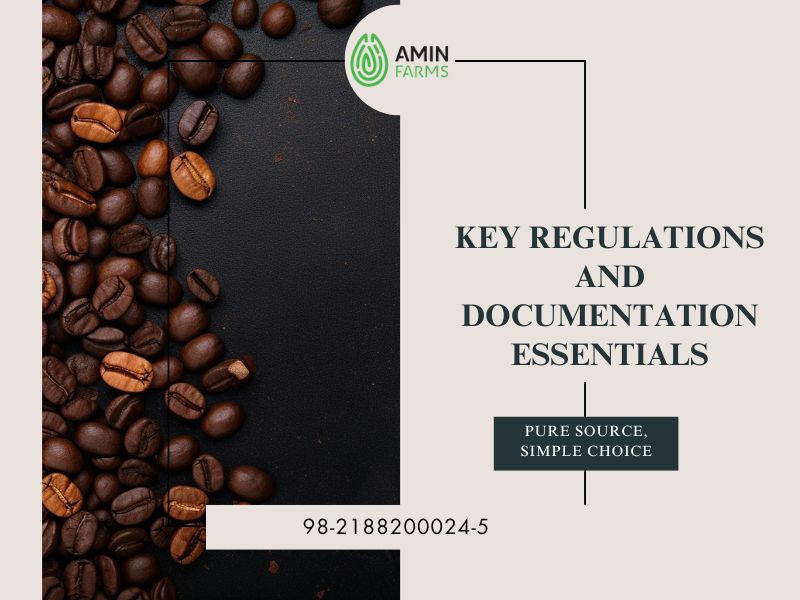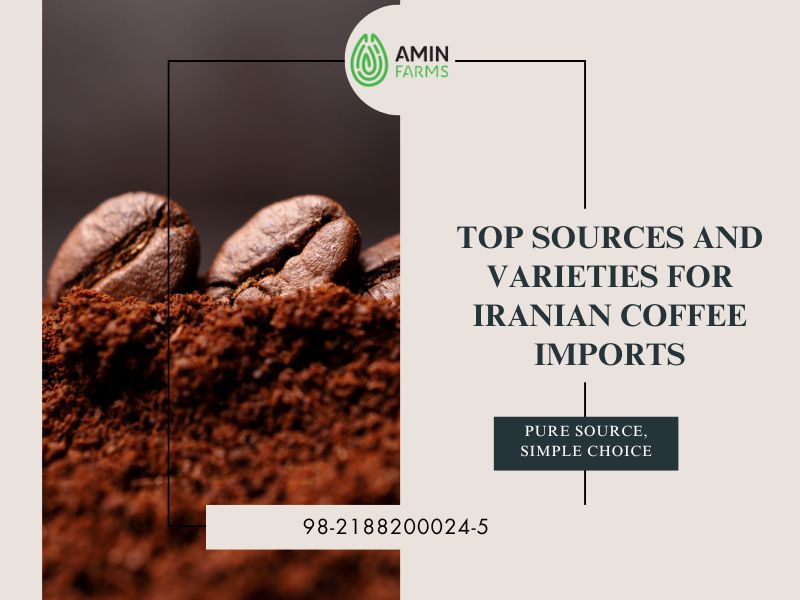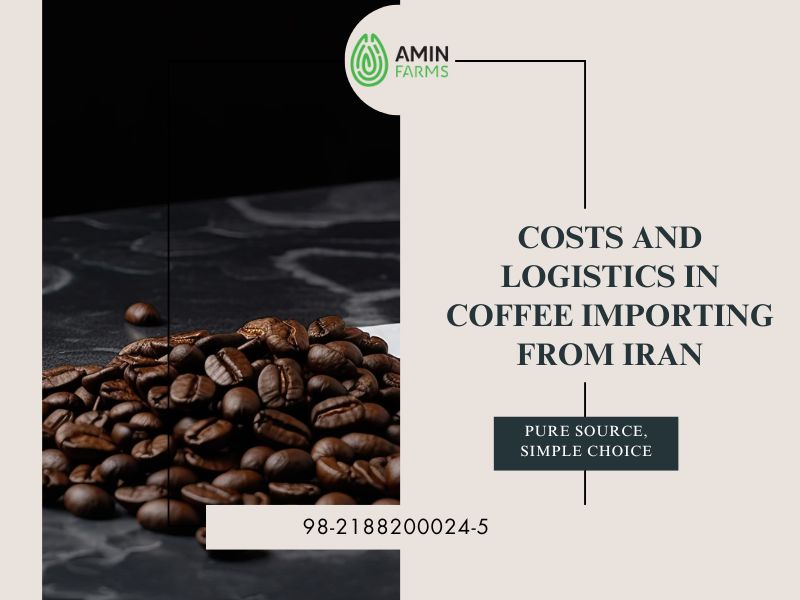Essential Guide to Importing Coffee from Iran

The global coffee market is dynamic, and Iran is fast emerging as a unique, high-potential source of quality beans. The decision to import coffee from Iran offers exciting opportunities, but successful engagement requires meticulous planning and a deep dive into market specifics.
This success hinges on understanding key regulations, mastering documentation, and establishing reliable logistics.
This essential guide provides a comprehensive roadmap for global traders interested in this specialized niche. We will detail the necessary step-by-step process, outline key sourcing strategies, and identify the top exporters to partner with.
We also address the specific costs and common challenges faced by international buyers, offering practical solutions to ensure smooth operations. Finally, by examining the critical 2025 Trends in Iran’s Coffee Trade, we will clearly articulate why discerning importers should consider importing coffee from Iran now, positioning your business for future growth and unique market access.
Step-by-Step Guide to Importing Coffee from Iran

Successfully managing the import of coffee from Iran requires a meticulous, phase-by-phase workflow to ensure efficiency and legal compliance. The main stages involve:
- Vetting Credible Suppliers: Scrutinizing the quality of the green or roasted beans, including origin, roast level, and required quality certifications.
- Target Market Analysis: Understanding consumer demand and selecting the optimal coffee varieties that align with market needs.
- Communication & Negotiation with Exporters: Establishing the final price, precise payment terms, and critical shipping details before placing the official order.
- Logistics Planning: Selecting the appropriate transport method, estimating delivery times, and defining storage conditions necessary to preserve bean freshness.
- Cost and Payment Management: Carefully reviewing exchange rates and establishing compliant payment methodologies to minimize unexpected costs and avoid delays.
By diligently following these critical steps, importers can manage the import process for coffee from Iran in a sequential manner, ensuring both the security and quality of their cargo.
Key Regulations and Documentation Essentials

Successful coffee imports from Iran are underpinned by strict adherence to regulations and the preparation of essential legal documents. The key considerations include:
- Familiarization with Export/Import Laws: This encompasses necessary licenses, customs declarations, and mandatory quality inspections.
- Preparation of Essential Documents: Meticulous preparation of key documents is critical for the successful import of Iranian products, particularly green coffee beans. Importers must obtain the Commercial Invoice, Packing List, and Certificate of Origin (COO) from the exporter. Additionally, a Health/Phytosanitary Certificate is mandatory for coffee shipments. Any errors or omissions in these documents can result in significant customs delays and increased storage costs at the port. Ensuring accuracy and completeness from the start helps streamline clearance processes and minimizes logistical risks.
- Collaboration with Customs Brokers or Freight Forwarders: Engaging experts is vital for managing complex administrative procedures and legal obligations.
- Awareness of Sanctions and Tariffs: Remaining informed about any applicable international sanctions and specific tariffs helps prevent legal issues and shipment clearance delays.
Meticulous compliance with documentation and regulations not only streamlines the import process but also builds the importer’s credibility with suppliers and legal authorities, establishing a strong foundation for long-term trade.
Top Sources and Varieties for Iranian Coffee Imports

Iran offers a diverse range of high-quality coffees for international importers. From rich, aromatic beans cultivated in fertile regions to unique, specially blended flavours, there are varied options to suit different global markets. The essential factors for selecting coffee varieties include:
- Origin and Cultivation Region: Directly influences the beans’ aroma and flavour profile.
- Bean Type: Includes Arabica and Robusta, each with distinct taste characteristics.
- Roast Level and Final Flavour: Must match specific consumer preferences in the target market.
- Consistent Supply and International Standards: Ensures product quality and stability when you import coffee from Iran.
- Organic and Sustainable Options: Ideal for specialty markets and environmentally-conscious consumers.
Careful selection of sources and varieties enables importers to gain a competitive advantage and meet their customers’ diverse demands optimally.
Sourcing from Leading Coffee Exporters

Choosing reliable exporters is paramount to maintaining a continuous supply of high-quality coffee. Amin Farms is one of the most professional and trustworthy suppliers in Iran. Amin Farms possesses several outstanding features:
- Premium Quality: Provides top-grade coffee beans that comply with international standards.
- Competitive Pricing: Offers attractive, competitive prices for the global market.
- Sustainable Partnerships: Works closely with farmers for sustainable cultivation and precise bean processing.
- Guaranteed Consistency: Ensures freshness and quality stability across all shipments.
- Complete Documentation: Provides all necessary paperwork for smooth and legal export.
Partnering with reputable exporters like Amin Farms helps importers reliably secure a high-quality coffee supply and minimize logistical risks. This collaboration is a vital step toward successfully managing your coffee import from Iran.
Costs and Logistics in Coffee Importing from Iran

Successfully managing the import process for coffee from Iran requires careful cost estimation and effective logistical planning.
Key Cost Management Considerations
Understanding the main costs involved is essential to prevent unexpected expenses and maintain profitability:
- Payment Methods: Due to international banking restrictions, alternative financial channels or intermediary companies may be required, which may involve additional fees.
- Customs Tariffs: Accurate calculation of import tariffs in the destination country (based on the HS code) is essential to avoid unexpected expenses.
- Additional Costs: Include cargo insurance, inspection fees, and port storage charges in case of delays.
Efficient and Smart Logistics
Optimizing logistics ensures timely delivery and maintains the quality of the coffee:
- Freight: Choosing the appropriate shipping method (commonly via sea from Bandar Abbas or Bushehr) and working with experienced freight forwarders on Iranian routes is critical.
- Timing: Careful planning of shipping and clearance schedules ensures coffee freshness and minimizes delay-related costs.
By carefully controlling these factors, importers can reduce risks and optimize their operations when importing coffee from Iran.
Challenges and Solutions for Global Importers

While importing coffee from Iran offers promising opportunities, it also presents several practical and regulatory challenges that require foresight and strategy. Success in this market depends on the importer’s ability to anticipate obstacles and implement effective, realistic solutions.
- Financial transactions can be complex due to international banking restrictions and limited access to traditional payment systems. The best approach is to use verified currency intermediaries or authorized third-country financial channels to ensure secure and compliant transfers.
- Logistics can also be complex, especially when finding reliable shipping routes or managing transit through regional ports. Collaborating with experienced freight forwarders familiar with Middle Eastern routes and ports, such as Bandar Abbas, helps streamline transportation.
- Customs clearance delays often occur when documents contain even minor errors, resulting in long wait times and high storage fees. Reviewing all paperwork, especially the Certificate of Origin and Commercial Invoice, before shipment and working with a professional customs broker can prevent these issues.
- Maintaining consistent coffee quality throughout long-distance transport is another key concern. This can be addressed by setting strict agreements on packaging standards, using temperature-controlled containers, and arranging independent pre-shipment inspections.
By proactively addressing these challenges, importers can reduce risks, ensure smoother operations, and strengthen their position in the growing market for coffee imports from Iran.
2025 Trends in the Iranian Coffee Trade

Iran’s coffee market is poised for a transformation in 2025. As café culture flourishes and demand for premium beans grows, new opportunities are emerging for those looking to import coffee from Iran. However, navigating this evolving market requires insight and strategy.
- Rising demand for specialty and single-origin coffees is reshaping consumer preferences toward higher quality.
- Broader sourcing from African and Asian origins is expanding market diversity and competition.
- Local roasting investments are increasing, driving value-added production within Iran.
- Re-export of roasted and branded Iranian coffee products to Middle Eastern markets is gaining momentum.
- Digitalization of trade processes is enhancing transparency, efficiency, and global reach.
Why Import Coffee from Iran Now?

Iran’s coffee market is entering a pivotal moment, blending rising global demand for specialty beans with Iran’s growing expertise in roasting and processing. This unique combination offers importers the opportunity to secure premium quality at competitive prices.
Those who import coffee from Iran can benefit from diverse sourcing channels, advanced local processing, and Iran’s strategic position as a regional trading hub, all before the market becomes saturated.
To make the most of this opportunity, partnering with a reliable and knowledgeable supplier is essential. Amin Farms stands out as a trusted name in high-quality Iranian coffee exports, offering expertly processed beans at fair prices.
With a commitment to excellence and transparency, Amin Farms ensures a smooth, efficient import process that helps global buyers establish a strong and sustainable position in this fast-evolving market.



